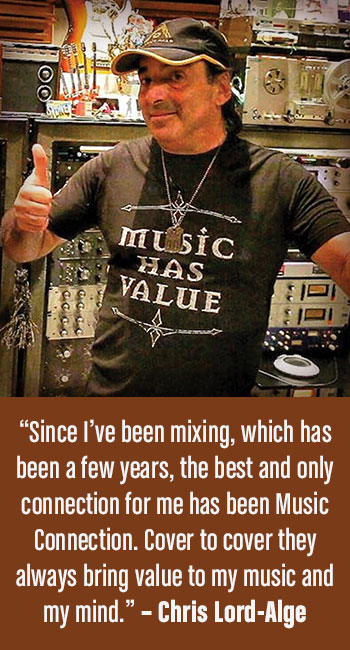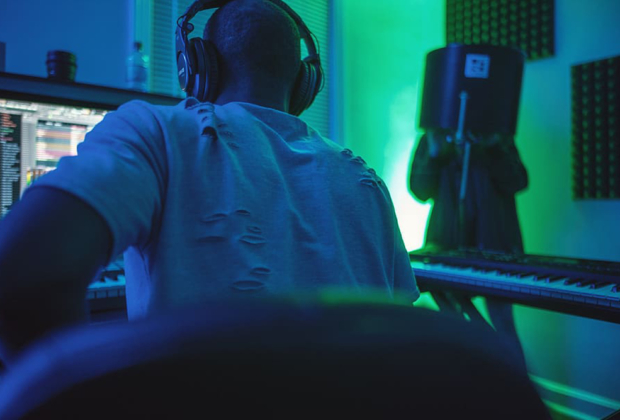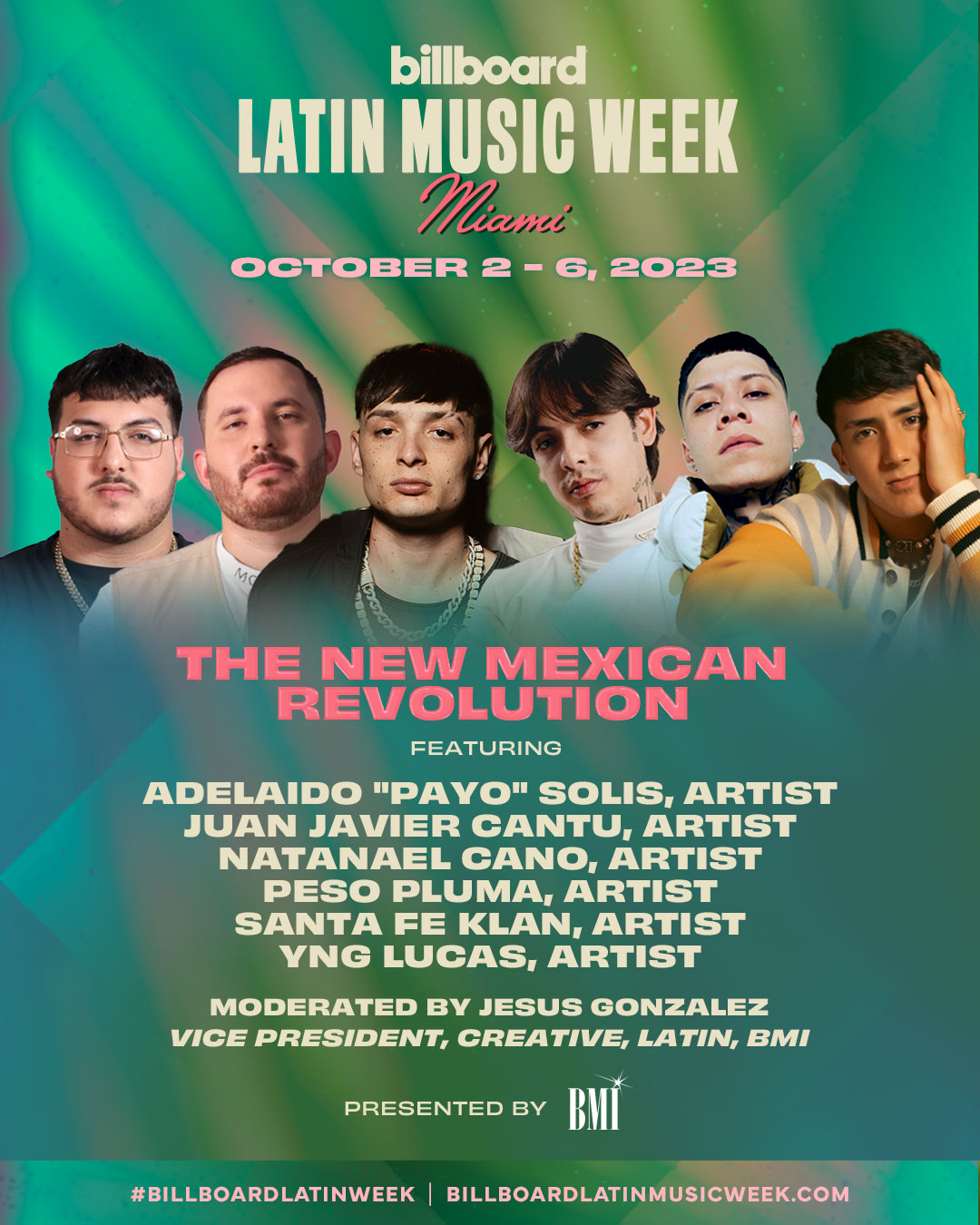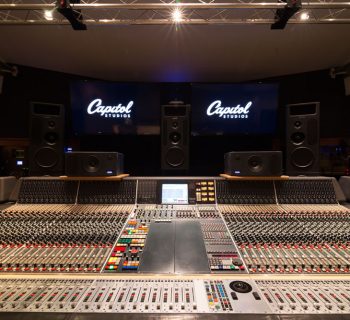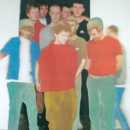A Music Connection specialty is to pick the brains of industry pros, to help artists and music-makers understand how the industry works, both from a technical standpoint and a business standpoint. Our ever-popular Masters of Mastering returns this year with five top mastering engineers, who share their experiences and offer insights into what works and what does not when it comes to helping an artist’s recordings to sound great.
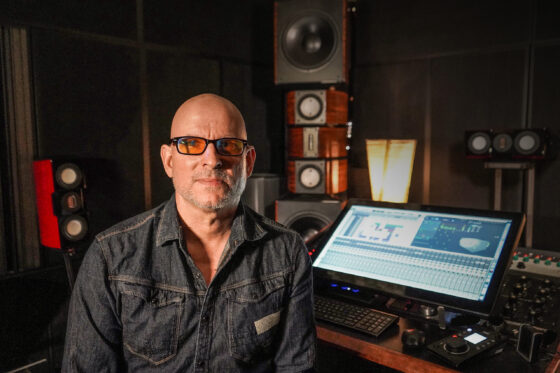
Brian Lucey
Company: Magic Garden Mastering
Clientele: The Black Keys, Cage the Elephant, Lizzo
Contact: magicgardenmastering.com
Originally from Columbus, OH, multi-Grammy winner Brian Lucey was embedded in New York City’s East Village music scene in the waning days of the ‘80s. Under the tutelage of Robert Fripp, legendary musician and organizing force behind King Crimson, he refined his craft. His repertoire expanded when he taught himself production and engineering and then made his final foray into mastering in the late ‘90s. Lucey established Magic Garden Mastering more than two decades ago and now lives and works in Los Angeles. Recently Access Analog released a robotically-controlled copy of his chain as part of its Analog Matrix plugin.
What big mastering changes have been seen in recent years?
We passed peak loudness maybe seven-to-ten years ago and that has trickled down a bit more. Sometimes people will ask me to turn something down and I’m not superhot on the first go. There’s also been more evolution of education but also two hiccups: focusing of LUFS [Loudness Units relative to Full Scale] measurements as some sort of important factor and focusing on measurement for streaming.
What are the best ways to find new clients?
I don’t find new clients. That’s never worked for me. My business model is that I do the work and then clients find me. If I ever advertise something it’s only to tell people what I’ve done because credits aren’t really known in this era. I see it as having no control over what jobs I get. That’s pretty much up to the universe.
Should engineers be concerned about how useful or powerful mastering plugins have become?
No one should be concerned about plugins. They’re amazing and they get better all the time. But even the best ones will never be able to [emulate] the sound of transformers and high-shelf boosting. They’re both out of the range of what can be programmed and that’s probably not going to change, according to the developers I talk to.
Is there a single tool–hardware or software–that you deem indispensable?
My whole chain is indispensable, which is why I have spares. I’ve got late-fifties, early-sixties Amperex Bugle Boy EF86 [tubes] in my output stage. If I don’t have that tube in it, my whole chain falls apart. The net result is a single tool. I’ve got a Fairman, elysia alpha compressor and Pacific Microsonics conversion. They’re point-to-point connected with particular cables from Acoustic Zen.
Can a mastering engineer fix a problematic or bad mix?
To me, mastering is about enhancement. I don’t think of it as a correction or technical step. A common myth is that great mixes are easier to work on. They have room for enhancement, but we have to be careful. Lesser mixes are much easier to enhance.
What’s the best way to determine what an artist wants from their mastered record?
That’s the crux of the skill. It’s partly having a near encyclopedic understanding of the history of music so that whatever comes in it’s able to be seen as going a certain direction. Then it’s partly intuiting what’s there based on my understanding of the recording process.
What are some alternate income sources for mastering engineers?
For any artist, owning real estate is the best alternative income. That’s the first step after any kind of success.
What’s the best path for those who aspire to become mastering engineers?
In a world of overwhelming options, the hardest thing to do is to trust yourself. It’s okay to make any choice that you feel good about. They aren’t forever. In the ‘90s I got a bunch of early ‘80s CDs that were highly dynamic. So, I figured out how to make dynamic music louder while still moving air and having low end at low midrange.
What are the three most important things you know now that you wish you’d known when you were starting out?
If you do your best, things will work out but not necessarily in a way that you can control.
Follow the signs and trust the process.
Focus on your daily effort. It’s the only thing that you can control. •
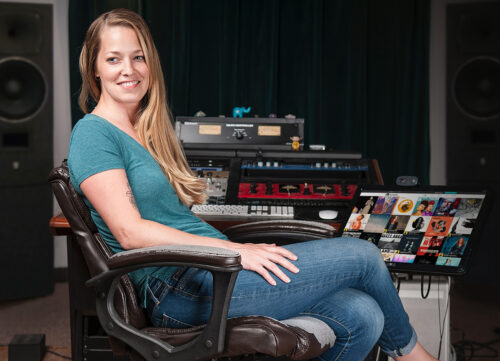
Kim Rosen
Company: Knack Mastering
Clientele: Flogging Molly, Bonnie Raitt, Allison Russell
Contact: knackmastering.com
Grammy-nominated mastering engineer Kim Rosen was born on the East Coast and grew up in the local music scene. Her introduction to mastering came in 2002 when a friend told her about an internship opportunity at West Side Music. Despite having no formal engineering training, studio-owner Alan Douches saw something in Rosen and offered her the gig. After seven years there, she opened Knack Mastering, her own space. Five records she’s worked on have won Grammys with a total of 18 earning nominations. The first nod was for singer Bettye Lavette’s Worthy for Best Blues Album.
What big mastering changes have been seen in recent years?
Technology is always evolving and changing, both in formats and in tools. There are plenty of engineers who work one hundred percent in the box. I don’t. I have a hybrid of analog and digital. The way we prepare files for streaming has also changed, taking into account where listeners are hearing their music: mostly earbuds and car stereos.
What are the best ways to find new clients?
Word-of-mouth, doing excellent work and giving great customer service. Looking for other artists and engineers is also useful. If you do a good job, it’s likely that they’ll send more projects your way.
Should engineers be concerned about how useful or powerful mastering plugins have become?
There’s an importance in terms of technology and the evolution of our capabilities. But there’s still nothing like an actual musician playing and recording. My moves and positions will resonate far more than an AI or computer mastering something.
Is there a single tool – hardware or software – that you deem indispensable?
My ears, speakers and my room. There’s no amount of gear that can replace those. Two years ago I upgraded to Strauss Elektroakustik MF-4 speakers and their matching power amp. They’re full-range, with a fantastic frequency response, and they’re meticulously made. They allow me to be far more specific in the way that I work.
Can a mastering engineer fix a problematic or bad mix?
Yes and no. There are a lot of tools we can use to alter a mix but we’re limited by them. We can address issues with sibilance or certain elements standing out too much. But to fully fix a mix issue, that’s a big, fat no.
What’s the best way to determine what an artist wants from their mastered record?
Speak with them. Often, I’ll ask for examples of music they’ve been listening to that inspired their album. It’s important to understand that I’m not asking what they want their record to sound like but [to gauge] the state of mind that they were in. I’ll also listen to their past work but won’t assume that they want [the new record] to sound like it.
What are some alternate income sources for mastering engineers?
When my husband Dave and I started to build my mastering room, we researched gear for my chain. I had a Fearn compressor, but I used it more for gain staging. It has a way of lending a “sound” just passing audio through it. His thought was to create a box that could enhance the sound of things using transformers and tube loading to add harmonics in different ways. We started development of Whitestone Audio Instruments in 2012 and launched it in 2019. Our P331 Tube Loading Amplifier fits seamlessly into my process.
What’s the best path for those who aspire to become mastering engineers? Is a formal education preferred over a practical one?
Some general electronic engineering background is helpful. The more you understand about engineering, electronics and sound, the better foundation you’ll have. However, when it comes to mastering, it’s both technical and creative so it’s beneficial to apprentice or intern at a mastering studio.
What are the three most important things you know now that you wish you’d known when you were starting out?
I can’t say that I wish I knew things sooner because there’s a natural timeline for everyone. There was never a point where I struggled because I didn’t know something. We always have the capacity to learn as we go and I think that’s the best way sometimes. If you learn everything at the beginning then it becomes less of a journey. •
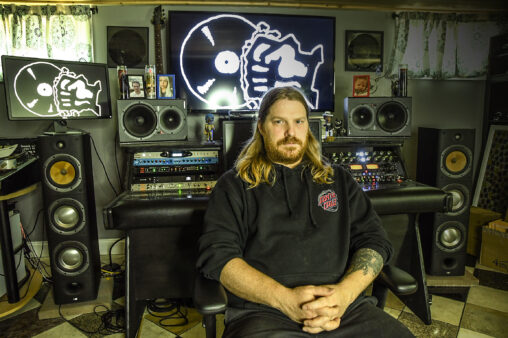
Dan Emery
Company: Black Matter Mastering
Clientele: Kool Keith, Matt Heckler, Benjamin Tod
Contact: blackmattermastering.com
Nashville native Dan Emery came to mastering by way of recording engineering. He didn’t know many mastering pros and at some point decided to learn the craft for himself. It was also clear that it would cost him less to finish his own records. Much of his trade was learned through various mentors as well as simple old-school trial and error. He opened Black Matter Mastering in 2012 where post-production for the minimalist recording series Magnolia Sessions is run. Vinyl etching—an image pressed into an unplayable side of a record—is another service that the studio offers.
What big mastering changes have been seen in recent years?
The way that people deliver to distribution seems to change rapidly. There’s been such a huge resurgence in vinyl that we’ve been doing a lot of that: people wanting things prepared for vinyl and digital. The challenge is balancing the two. Ultimately, you want it all to sound like the same album.
What are the best ways to find new clients?
Marketing is the one thing I hate about running a business. But most of it is organic, which is a slow-turning wheel. I get a lot of work through word-of-mouth. If a client had a great experience, they’ll want to work with you forever.
Should engineers be concerned about how useful or powerful mastering plugins have become?
The way I feel about mastering plugins is the same way that I feel about TV dinners: if I’m in a pinch, I can throw a burrito in the microwave. But if I’m looking for a good meal, I’ll have someone prepare it who cares. Automation works to a degree but at a certain point you don’t want to chance it based on ones and zeroes. Mastering is still part of the artistic process.
Is there a single tool–hardware or software–that you deem indispensable?
The best answer, of course, is my ears. You need to be able to make different pieces of equipment do what you want them to do. The biggest part of that is knowing what you’re trying to hear and how to get that. But the most important thing is good metering; being able to analyze what’s happening on a scientific level. Mastering The Mix has some good metering plugins. It gets you a solid visual of your phase correlation and things happening within your dynamic range.
Can a mastering engineer fix a problematic or bad mix?
I don’t think so. There are certain things I can do to cover up a bad mix but if there’s something that’s not right, it’s so much easier to have the mix engineer fix it. I have to appreciate that the mixer did everything intentionally and whatever I’m doing is deemed a compromise. It’s me changing something they did specifically.
What’s the best way to determine what an artist wants from their mastered record?
Communication. When a mastering engineer sends you a reference, talk about it. Discuss how it makes you feel because that’s how you’re going to feel in twenty years. You’ve created a Mona Lisa and you’re letting someone [else] put the frame on it. A common misconception is that mastering is supposed to make the mix better. The way it was recorded and mixed is exactly how it’s supposed to sound. I’m making that deliverable in multiple formats and not sound wrong.
What are some alternate income sources for mastering engineers?
Remasters are hard because if you’re getting something that’s a classic, the last thing you want to do is anything that detracts from that. In that case, doing your job too well could be a problem.
What’s the best path for those who aspire to become mastering engineers? Is a formal education preferred over a practical one?
If you can do both, do both. Schools will teach you a lot of science behind sound. But you can’t underestimate the importance of getting in there and getting your hands on it; getting your own workflow going.
What are the three most important things you know now that you wish you’d known when you were starting out?
Communication. Listen to your clients and discuss what they want.
Break down your own barriers and don’t limit yourself to certain types of gear.
Don’t half-ass your setup. Spend the money on good equipment. •
Randy Merrill
Company: Sterling Sound
Clientele: Taylor Swift, Ed Sheeran, Lady Gaga
Contact: sterling-sound.com
Randy Merrill is a nearly lifelong musician. The drums were his first instrument as a child, he grew into guitar as a teenager and settled ultimately on the bass as his signature sonic. He was introduced to recording in college at the school’s two recording studios. Initially he worked towards a production and engineering career, but while at Avatar Studios (now Berklee’s Power Station) where he assisted in building a mastering studio, he realized that finalizing records was his passion. He joined noted mastering house Sterling Sound in 2013 and several records he’s engineered have won or been nominated for Grammys.
What big mastering changes have been seen in recent years?
Streaming. When you’re mastering for it, it’s a good idea not to push the volume as much as what was required for the CD or download eras. The DSPs [digital service providers] employ loudness normalization algorithms. Even though it might be turned down, [a track] can still sound loud, full and engaging alongside other records.
What are the best ways to find new clients?
Much of it is having a presence on the Sterling website. Many people book through our online service or they contact my manager. It’s also through maintaining relationships. I stay tight with my mixers. Work hard to keep them happy.
Should engineers be concerned about how useful or powerful mastering plugins have become?
Even though the tools have gotten very powerful, I don’t think so. It’s still advantageous to have a separate person do the mastering. I discourage mixers mastering their own mix not because of their skill level but because it’s good to have another ear on it; someone with a different perspective and acoustic environment.
Is there a single tool—hardware or software—that you deem indispensable?
I use the FabFilter EQ on most projects. I like that it’s transparent. It’s not going to add any influence and it allows me to shape the coloration as needed. There’s also the resolution. You can get down into hundredths or even thousandths of a decibel of EQ. It’s a very precise tool.
Can a mastering engineer fix a problematic or bad mix?
You can do quite a bit if you’re willing to put in the time. Ozone’s Master Rebalance is a tool that helps with that. I can adjust the vocal volume by itself. EQ alone may not give you the same result. You can also do drums and bass. Sometimes a mix is so loud or compressed that there isn’t a lot I can do with it.
What’s the best way to determine what an artist wants from their mastered record?
Ask if they have any of their own mastered songs or others that they like the sound of. If they have their mixer’s version of the mastering, that feedback can be helpful. They can also reference other records I’ve done.
What are some alternate income sources for mastering engineers?
Remastering tends to be lucrative because it’s not just the mastering itself. Something that’s forty years old can have a large audience and you can sell additional deliverables for CD or vinyl manufacturing.
What’s the best path for those who aspire to become mastering engineers? Is a formal education preferred over a practical one?
A recording school gives you access to a studio, teacher and gear. An internship or apprenticeship is also good. Unfortunately, they’re difficult to find. Generally, we don’t have interns at Sterling due to the sensitive nature of our work. A smaller independent mastering studio where they need quality control help is a solid bet.
What are the three most important things you know now that you wish you’d known when you were starting out?
The client is almost always right. Their criticism is beneficial.
Don’t underestimate what people can hear. Playback systems now are greater than ever.
Always set yourself up for success by doing your homework. When I work with an artist for the first time, I’ll listen to some of their other recordings. *
Gavin Lurssen
Company:Lurssen Mastering
Clientele: Elton John, Miranda Lambert, various soundtracks
Contact:lurssenmastering.com
A four-time Grammy winner and an engineer on multiple platinum records, Gavin Lurssen graduated from Boston’s Berklee College of Music in 1991. He relocated to Los Angeles shortly thereafter where he landed a runner gig with veteran mastering engineer Doug Sax. In 2005, independence beckoned and he founded Lurssen Mastering. In addition to countless records, his company has mastered soundtracks including Pitch Perfect 2 and The Flash. It’s been involved with IK Multimedia’s Lurssen Mastering Console, Embody’s Immerse Virtual Studio and is affiliated with Produce Like A Pro’s mastering course.
What big mastering changes have been seen in recent years?
Mixing has become so easy to recall now because everybody’s in the box. There are a few interesting factors to that. One, in the old days if a mix needed a lot of work, it was a big deal to recall it so we tended to work on what was in front of us. Mixers can tweak a mix and send it to us before we do anything to it and then get a better result. Two, sometimes when a client hears a master, they want to change the mix, usually in tiny ways. Sometimes mix engineers even bring their laptops with stems into my studio and make the changes there.
The loudness war has all but disappeared, largely because people understand that it’s a detriment and because streaming platforms do their own leveling.
What are the best ways to find new clients?
Whether you’re getting paid or not, make sure that you’re always busy and are seen to be so because you create a vibrancy on how to do business, how to manage your time and how to get your work done. I tell young people getting into the business to be active, go to networking events and get to know your peers.
Should engineers be concerned about how useful or powerful mastering plugins have become?
When we did our first plugin with IK Multi-media, several of my colleagues asked if I was afraid it would replace us. I always have the same response: if someone can cannibalize you, it may as well be you because if it’s not, it’s going to be someone else. Stay with the times. Embrace plugins, embrace AI. If technology rules us out, then so be it.
Is there a single tool—hardware or software—that you deem indispensable?
Monitors tell the truth, whether they’re speakers or headphones. I like Audeze headphones, ATC monitors for far and mid-field and both ATC and Genelec for near-field.
What’s the best way to determine what an artist wants from their mastered record?
Usually, they want to know what we think they need. The artist is consumed with picking people who help shape their music in a way that presents their vision to the fans. The artist’s ultimate goal is to create a global feel of the service I provide; to create a scenario in which the listener has no idea that we did anything.
What are some alternate income sources for mastering engineers? For example, is working on remasters lucrative?
Plugins aren’t a pay-your-bills kind of income source. But what they do is keep your name alive as a thought leader.
What’s the best path for those who aspire to become mastering engineers? Is a formal education preferred over a practical one?
As an employer, if you come from a school and did well, that tells me you stuck to it; that you committed. If you’re new to the field, it’s virtually impossible to say that this is what you want to do with your life. You have to take a job and see if it is.
What are the three most important things you know now that you wish you’d known when you were starting out?
Live a life of no regrets. Everything that happens is just part of the mix.
Don’t accumulate stuff for the sake of it. Keep your life small and simple.
Every relationship has give and take. Focus on the giving, because the take is what you receive from that.
